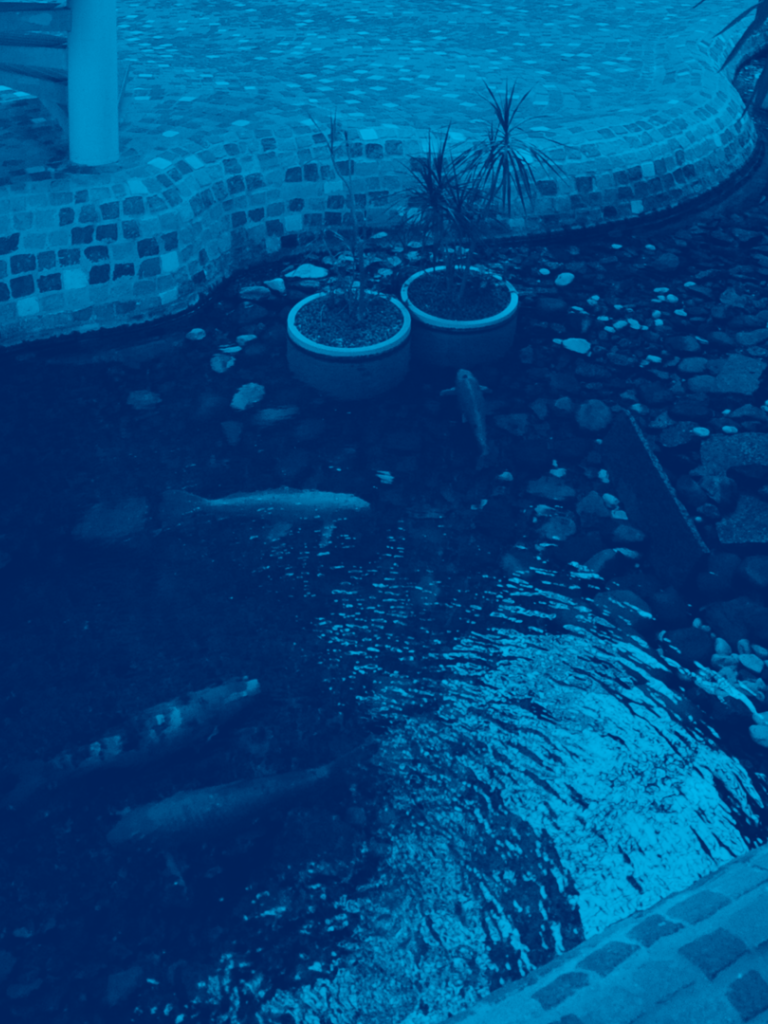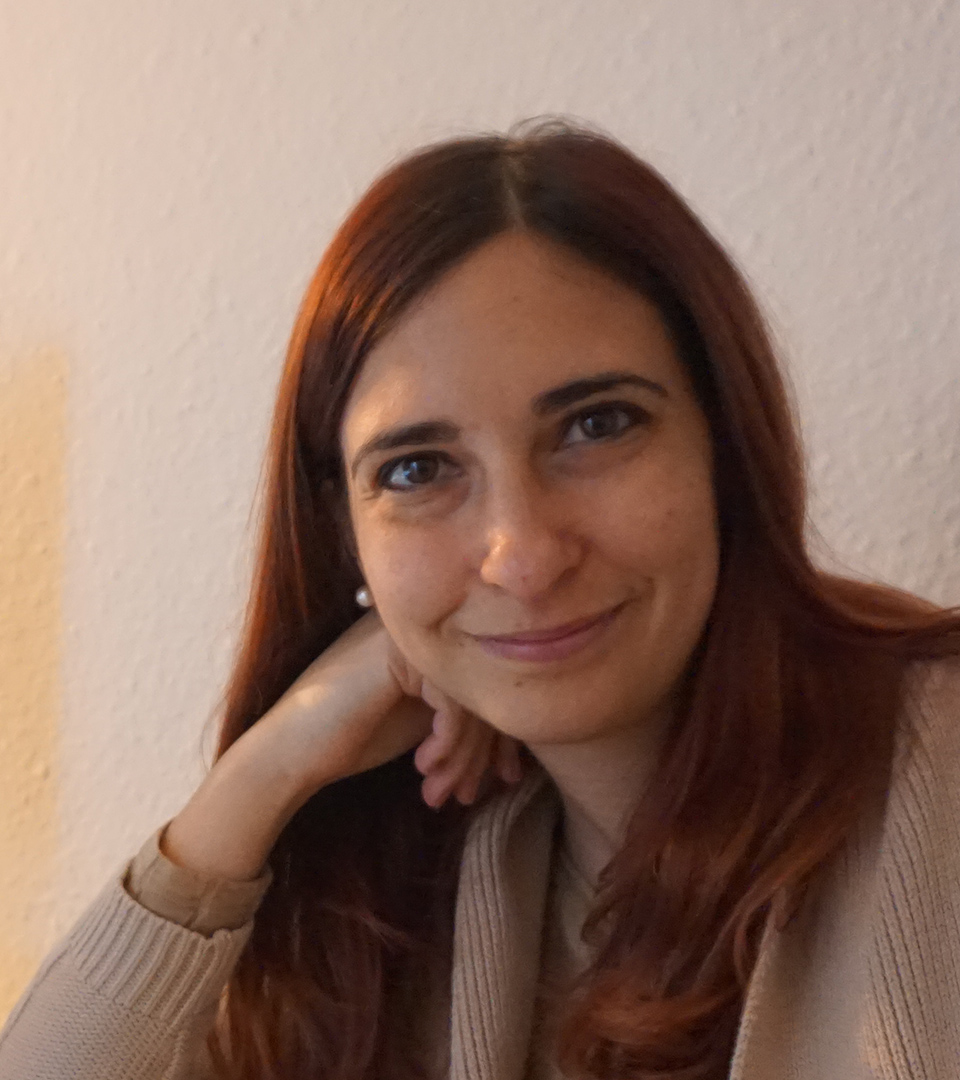
Inside EUMETSAT: meet Stefania and Paolo
Inside EUMETSAT interviews Stefania Tarquini and Paolo Ruti.


This week, Inside EUMETSAT returns with a very special, Italian-style interview with two more of our outstanding EUMETSAT colleagues: Stefania Tarquini and Paolo Ruti! Stefania joined EUMETSAT back in 2013, while Paolo is a relative newcomer, having joined the team in October of last year.
19 May 2022
06 April 2021
Inside EUMETSAT is a series of articles for the EUMETSAT Science Blog that will be published over the next weeks and months. Each week, we’ll introduce you to two valued members of our team: one newcomer, joined in the past year, and one senior staff member who has spent years at the organisation.
In a time that’s far from ordinary, we hope to use this opportunity to introduce our readers to some of the diverse and friendly faces they might encounter in the course of a normal day at EUMETSAT. It’s our goal to appreciate and celebrate all the different and talented people who work here. We hope these articles will help you discover—or rediscover—EUMETSAT.


Meet Stefania and Paolo!
What is your current role at EUMETSAT?
Stefania Tarquini: I am a LEO (Low Earth Orbit) Spacecraft Operations engineer. I joined EUMETSAT in April of 2013. I work in the EPS (EUMETSAT Polar System) Programme and I take care of the operations of the Metop satellites. My focus is on the power and thermal subsystems. I am also working in operations preparation for the same subsystems on EPS-SG (EUMETSAT Polar System — Second Generation).
Additionally, I am the End-of-Life Project Manager for Metop-A, which is the oldest Metop satellite currently in orbit. This year is really busy because we will start deorbiting Metop-A in November. My main goal is to ensure that the deorbiting happens as planned and that we fully comply with the ISO guidelines that govern deorbiting satellites in a clean and safe way. In parallel, I am planning and organising a series of technological tests on the instruments of Metop-A which are set to begin a few months before the deorbiting. The tests have different objectives, like climate applications and improving our understanding of the instruments to ultimately enhance our products, data quality and operations.
Paolo Ruti: I joined EUMETSAT as Chief Scientist in October 2020. How can I describe my job? It’s a bit like putting together an inspiring Netflix series: you need screenwriters who can develop inspiring narratives based on an original idea (earth observation), by adapting an existing story (Meteosat Third Generation, EUMETSAT Polar System — Second Generation) into a screenplay (future developments in the satellite industry) which will keep you glued to the screen for hours. You need to interact with the cast of the series and with external experts to understand how the compelling storyline could evolve and make the best of it. A TV series might be one source of inspiration, especially if you are looking for ways to keep your creativity (innovation) flowing.
Do you interact with each other’s teams for work?
ST: I don't interact with Paolo directly, but I interact with a lot of scientists from the EUMETSAT Remote Sensing and Products (RSP) division. Together we are planning some technological tests on the Metop-A spacecraft. The spacecraft team will take care of the execution and detailed plans for these tests and the scientists will collect and analyse the data. This builds on our cooperative success in the past two test campaigns and we just presented the first results to our Delegate Bodies earlier last month. It has been very successful so far!
PR: Not really, no. So I took this occasion to contact Stefania for an informal chat about EUMETSAT. I am the newcomer, but she is a young engineer here. We had a very nice discussion on how to promote the engagement of young scientists and engineers with EUMETSAT’s strategic thinking and planning.
What has been your biggest challenge during COVID and lockdown?
ST: It has been the lack of social interactions for sure. Both in my private life and at work. I like being social, going out with friends and organising nice dinners with many people. All of that feels more like a dream now. I also miss travelling: I look forward being able to plan a two-week holiday in a new country that I never visited before.
In addition, I have no kids or family, so with the COVID situation I tend to work too much. It is difficult to remember to take a break or to stop working before it's dinner time.
PR: I changed job, country and city during the lockdown. So last year was challenging, but brought very good things to me. During October and November of 2020, my initial period at EUMETSAT, I had the chance to meet people in person. Since then, learning how to effectively streamline communication and interaction has been the main challenge. It isn’t just about tools (i.e. Zoom, teams, Webex), it is about rethinking the way we work together.
What has your experience of EUMETSAT been during normal, non-pandemic times? Why do you like working here?
ST: I love the international environment, the different backgrounds that my colleagues have and learning something new every day. EUMETSAT is extremely stimulating to me. There is a strong sense of community and I feel I belong to an organisation that produces something useful and helpful for others. When I joined, I assumed I would only stay for one or two years and then move on to something else. In the end, I ended up staying and I am still really happy here. There are lots of possibilities, and if you are a bit pro-active, you can always find something new to involve yourself with.
What has been your experience of EUMETSAT been like so far and how did your recruitment take place?
PR: I will start with my recruitment. My interview took place online. I was in Italy at that time, and there is anecdotal evidence how lucky you are if you are interviewed online from Italy. Seven years ago, my interview for the Chief of the World Weather Research Division at WMO was online and I was in Italy then too. So, if you want to be lucky just travel to Italy for your future interviews ;-)
Since then, as I said, I moved from Geneva and settled in my new 'Zoom life' in Darmstadt and EUMETSAT. My experience of the organisation is obviously influenced by the fact that most of my interactions with people are done online. I really look forward to having more interactions on site and getting to know everybody 'live'.